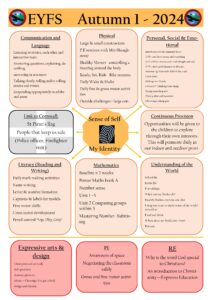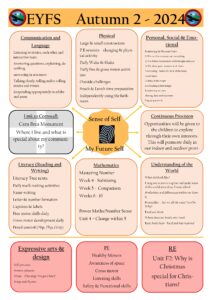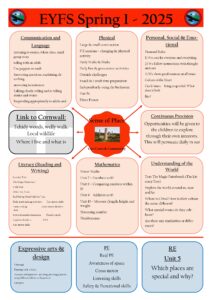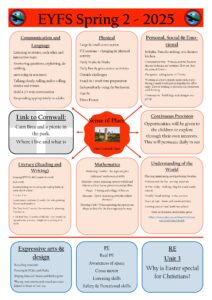EYFS
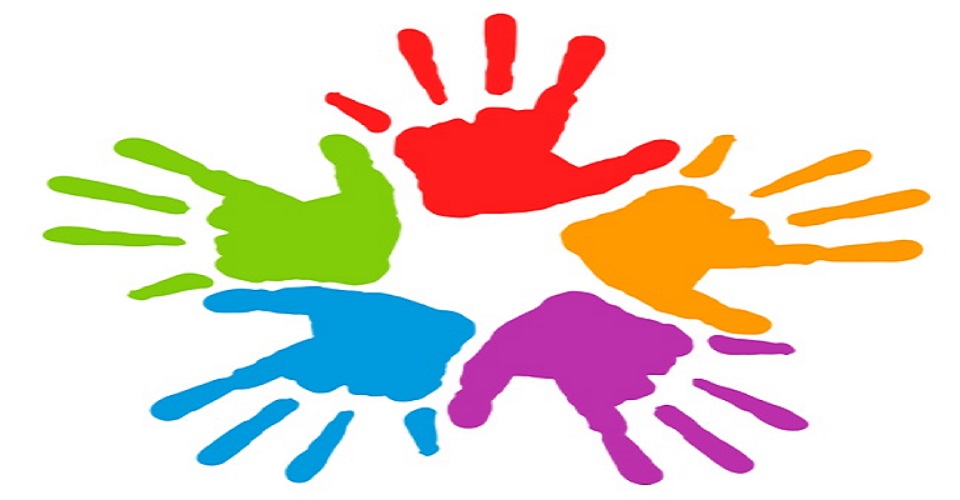
“There is more treasure in books than in all the pirate’s loot on Treasure Island.”
Walt Disney
“Develop a passion for learning. If you do, you will never cease to grow.”
Anthony J. D’Angelo
Intent
At Treloweth Primary School, we provide our children with an EYFS curriculum that is designed to be flexible, engaging and exciting so that their unique needs, passions and interests are embraced. The ability to learn is underpinned by the teaching of basic skills, knowledge and values that equips our children for their future success. We inspire our children to become accomplished, happy learners in a rapidly changing world.
Our curriculum recognises children’s prior learning and varied starting points; it provides first-hand learning experiences, allows the children to develop interpersonal skills, builds resilience and enables children to become critical and creative thinkers.
We aim to create a learning environment and build relationships which support, enhance and invite children’s curiosity, confidence and individual competency
to flourish. Our EYFS children begin their lifelong journey by developing physically, verbally, cognitively and emotionally whilst also embedding a positive
attitude to school and a love of learning.
Our ambitious EYFS curriculum seeks to provide teaching and learning opportunities to ensure:
• the broad range of knowledge and skills are taught to secure a solid foundation for good future progress through school and life
• every child makes good progress and no child gets left behind
• the development of each individual child is planned for, and assess and review what they have learned regularly
• we work in partnership with our parents and carers to promote independent, confident and enthusiastic learners who thrive in school and make at least good progress from their various starting points
• our children’s interests are provided for, and opportunities are planned throughout our EYFS curriculum to support learning, consolidate and deepen knowledge and ensure children meet their next steps confidently
• our children experience a wide range of rich, first-hand experiences to take the curriculum beyond the classroom
• we foster the development of each child’s character, their personal development, health and wellbeing and prepare them to make a valuable contribution to society
• we have purposeful, enticing and well planned indoor and outdoor environments which support learning in all areas of the curriculum
• we prepare children to reach the Early Learning Goals at the end of the Foundation Stage and equip them to be skilful communicators, who connect with others through language and play.
We recognise that children will learn most effectively when they are healthy, safe and secure, when their individual needs are met and when they have positive relationships with adults who care for them. We aim to provide a setting that encompasses a safe and stimulating environment where children are able to enjoy learning and grow in confidence and independence. We recognise that children have a thirst for new experiences and knowledge and aim to provide well-planned opportunities to engage their inquisitive minds.
Implementation
Our approach is underpinned by providing children with developmentally appropriate and ambitious opportunities for learning. Learning and development requirements comprise of seven areas. As children grow and progress, the prime areas are important for building the foundation for igniting curiosity and enthusiasm for learning, forming relationships and thriving.
These prime areas are:
• communication and language
• physical development
• personal, social and emotional development
Children are also supported in four specific areas, through which the three prime areas are strengthened and applied.
The specific areas are:
• literacy
• mathematics
• understanding the world
• expressive arts and design
All areas of learning and development are important and interconnected; they shape our educational outcomes. We use ‘Development Matters,’ non-statutory curriculum guidance for the Foundation Stage to support us in implementing the statutory requirements. These specific areas are woven into Treloweth’s three core key themes and support the children’s understanding of themselves, their sense of place and their sense of adventure:
Children learn through a balance of adult-directed activities and challenges, and child-initiated experiences.
Children’s spoken language underpins all seven areas of learning and development. Practitioners engage in high quality conversations; they comment on what the child is interested in or are doing, they echo back what the child is saying, and they say new vocabulary to build children’s language effectively.
The weekly timetable is carefully structured so that children have rigorous direct teaching in English, Mathematics and Phonics every day. We use the highly successful ‘Read, Write, Inc’ phonics programme to develop and embed knowledge and understanding of letters and sounds. We introduce a new sound daily and help each child to keep up by reinforcing that sound in the afternoon. We link our reading books that go home to the sound that the child is learning.
We have placed reading at the heart of our curriculum. We recognise that children need to be immersed and engaged in the richness of books to embed new words and develop a love of reading. We provide extensive opportunities to read, actively engaging children in story, non-fiction, rhymes and poems.
Teachers model, support and question sensitively to invite children to elaborate, re-tell or share their ideas and become increasingly confident using a rich range of vocabulary and language.
We have chosen ‘Literacy Tree’ to further introduce high quality text and develop language comprehension. We use the richness of stories and non-fiction books to teach early writing. This involves spelling, handwriting and composition of simple sentences and punctuation. Children learn to say their ideas in speech, before writing.
We use the RWI letter formation to develop early handwriting.
We follow the maths mastery approach in EYFS with a strong grounding in number so that children develop the necessary building blocks to excel. We provide children with opportunities to develop and improve their skills in counting, understanding and using numbers, calculating simple addition and subtraction problems; and to explore and describe shapes, spaces, and measure through continuous provision. We use ‘Power Maths’ to guide our planning and ‘Number Sense’ to reinforce key concepts visually. We shape opportunities for children to develop a secure base of knowledge and vocabulary from which mastery of mathematics is built. It is important to us that children enjoy maths and develop positive attitudes, so that they are keen to ‘have a go’ and are not afraid to make mistakes.
At Treloweth we nurture children’s understanding of the world and guide the children to make sense of their physical world and their community through opportunities to explore, observe and find out about people, places, technology and the environment.
We embrace and immerse the children in the expressive arts and design technology. This involves providing children with rich, enabling opportunities for them to explore and play with a wide range of media and materials, as well as providing opportunities and encouragement for sharing their thoughts, ideas and feelings through a variety of activities in art, music, movement, dance, role-play, and design and technology.
Parents are the first educators in the life of a child and as such, they are hugely influential and important. We aim to develop partnerships that foster open, positive and mutually supportive relationships so that every measure is taken for all children to thrive and have an equal chance of success. It is important that we know and understand our children’s lived experiences so that we can work together to maximise impact. We do this through daily communication, listening, seeking information, guiding and encouraging.
It is important to us that strong, warm and supportive relationships with our adults are established quickly so that we can help children to understand their
own feelings and those of others. We help children to manage emotions, develop a sense of self, set simple goals, have confidence in themselves and their abilities, to persist, wait patiently and share. Adults model and guide children to look after themselves, and their bodies, including healthy eating, and manage their personal needs with increasing independence. We support children to make friends and become a good friend, to cooperate, and resolve conflict peaceably.
Subject knowledge of the EYFS curriculum is strong amongst all practitioners and is used to plan a varied broad, balanced and progressive learning environment and curriculum for all of our children. Effective continuous provision practise and principles further support our children to develop key life skills such as independence, innovation, creativity, enquiry, analysis and problem solving. During the school day, children will have an opportunity to work independently, work collaboratively with their friends and with members of staff and in doing so they:
• Play and Explore – children investigate and experience things, and have a go.
• Learn Actively – children concentrate and keep on trying if they encounter difficulties and enjoy achievements.
• Create and Think Critically – children have and develop their own ideas, make links between ideas and develop strategies for doing things.
At a glance
• Statutory Framework for the Early Years Foundation Stage (effective from 1 September 2021)
• Development Matters September 2020
• Literacy Tree approach to writing
• Read, Write, Inc. (RWI) approach to phonics and early reading
• Handwriting – RWI letter formation
• Mastery maths approach is used, this is supported by using ‘Power Maths’ overview and ‘Number Sense’ small steps
• NCTEM ‘Ready to Progress’ materials provide consolidated ‘must do’ next steps
• Tapestry is our recording and assessment tool
• Key Workers with overview by Class Teacher
• Weekly time to share with parents and daily communication tool Class Dojo

